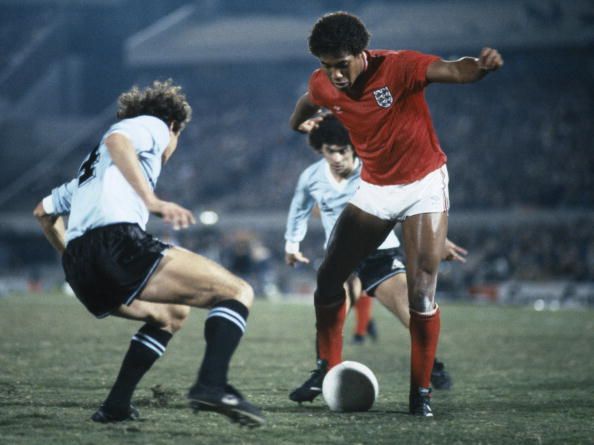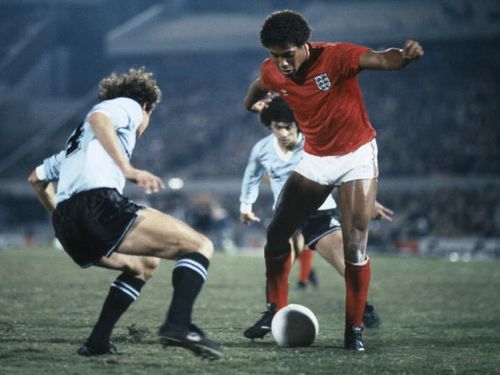
Remembering John Barnes' Maracana magic and its aftermath

On Sunday, the newly refurbished Maracana Stadium in Rio, globally renowned as the cathedral of Brazilian football, played host to an international friendly between Brazil and England. The English had a dismal first half; their best player was easily their keeper Joe Hart. After halftime, things changed for the better, and Roy Hodgson’s men scored twice between two Brazilian strikes to return home with a draw, which, considering the current state of affairs in their camp, was a very positive result.
This was England’s first visit to Brazil since a famous encounter between the two at the same venue on June 10, 1984. Just as Sunday’s match, that match was an inconsequential friendly too. There were no points at stake, no title to be won or any knockout round to qualify for; yet the game remains famous to this date. There are two reasons for that. One was that England won. Yes, regardless of the fact that Brazil were missing several key players including Zico, Socrates and Falcao, England defeated Brazil. The other reason was an outstanding goal scored for England by a 20-year old Jamaican-born player. His name was John Barnes.
Born as John Charles Bryan Barnes in Kingston, he moved to London along with his family when he was 12. After playing for Stowe Boys’ Club and Sudbury Court, he was noticed by second division side Watford. It was at Watford that he caught the eye with great performances and it was not long before he was noticed by the legendary Bobby Robson, coach of the England national team. A year after making his debut for The Three Lions, he found himself lining up on a summer night in the Estádio do Maracanã, to face Brazil.
This was not the mighty Brazil of 1982, widely considered as one of the best international teams never to have won the World Cup. There were some remnants, but it just was not the same team that mesmerized fans all over the world at the World Cup in Spain. The man at the helm of the Selecao at that time was Edu, elder brother of Flamengo icon Zico. Zico missed out on the England match along with Socrates and Falcao, but Edu’s first XI still featured the likes of Junior, Leandro, Roberto ‘Dinamite’ and Renato Gaucho. On the other side, Bobby Robson had also decided to field an experimental team, including debutante Dave Watson and upcoming players like Terry Fenwick, Mark Hateley, Mike Duxbury and of course, Barnes.
And then it kicked off. It was not supposed to be a match that would be set alight by a stunning performance, or so thought most people until the 44th minute. It all started with soon-to-be Milan forward Hateley controlling a long ball from the defence. He found teammate Barnes on the left with a high ball that the Watford man chested down with ease. And then he set off on a magical jinking run, slaloming and wheeling away from the Brazilian defenders, before rounding keeper Roberto Costa with a feint and tapping it in. It was his first goal for England and he couldn’t have done it any better. In eight seconds, he had skipped past six Brazilian players and found himself on his way to fame. John Barnes had announced himself on the world stage. Overnight, he had transformed from a little-known player from Watford to become a national sensation.
It was not English. The goal was essentially un-English in every sense of the word. Those who saw the goal will attest to that fact. Barnes himself acknowledges that he was not very comfortable in the rigid formations of the England teams that he played in. In fact, most people will agree with me when I say that Barnes had something Brazilian in him. When ex-England captain and Arsenal legend Tony Adams published his autobigrahy ‘Addicted‘ in 1999, the book was critically acclaimed for his description of his stellar career and his struggle with alcoholism. But apart from that, Adams had also included his ‘England Dream Team’ in the book. And in it, there was a place for John Barnes with Adams saying that Barnes “could pass, move, dribble, had Brazilian style movement. What more could you want?”